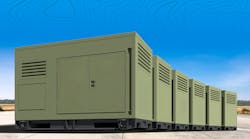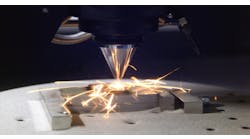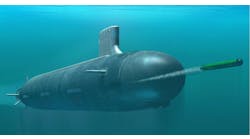General Motors will prototype an energy-storage concept based on its Ultium battery technology platform for the U.S. Dept. of Defense, part of a research program to develop “tactical microgrid and energy-management capabilities” for remote locations. The DoD’s Defense Innovation Unit is overseeing the Stable Tactical Expeditionary Electric Power (STEEP) program, which seeks to address power needs for austere locations or conditions, with reduced logistical requirements and reliance on fossil fuels.
According to GM Defense the Ultium concept is suitable as a scalable, adaptable energy storage unit for the tactical energy requirements of combat.
If successful, STEEP will transition to a U.S. Marine Corps program, but that schedule was not provided..
Ultium is the EV battery and motor architecture developed by General Motors for its own battery electric vehicles (and licensed as well to Honda), based on large format, pouch-type cells that use nickel-cobalt-manganese-aluminum (NCMA) chemistry.
For the DoD project, GM stated its prototype will provide uninterruptable power for mission-critical equipment, such as command and control, communications, radar, and weapons systems in places where there is no reliable power grid. GM Defense’s STEEP energy-storage system will anchor an “intelligent tactical microgrid” for hydrogen-powered generators, stationary and mobile battery electric power, or existing fuel-powered generators.
“This contract award demonstrates our ability to leverage advanced commercial technologies and investments from our parent company, GM, to reduce warfighter fuel consumption, and lower acoustic and thermal signatures, while providing efficient energy at the tactical edge,” stated Steve duMont, president of GM Defense. “
Last fall GM Defense won its first contract award from DIU in 2022 to provide an Ultium-based prototyping battery system for the agency’s Jumpstart for Advanced Battery Standardization (JABS) project. Since then, it has expanded its work under the contract to include integration of the high-voltage battery pack into the project’s Multi-Mission and Logistics vehicle. JABS is designed to help standardize battery modules across the DoD and pave the way for future battery advancements to be integrated and adopted within military platforms.






